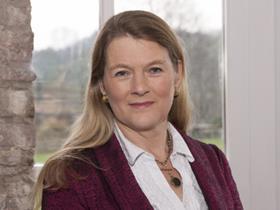
Tesco prioritised its own finances over treating suppliers fairly by “often lengthy” delayed payments, a Groceries Code Adjudicator (GCA) report has found.
The report, covering the period from 25 June 2013 to 5 February 2015, found the retailer had “seriously breached” the legally-binding Groceries Supply Code of Practice (GSCoP) on payment delays.
It found three key issues, including Tesco making unilateral deductions from suppliers, the length of time taken to pay money due to suppliers and in some cases an intentional delay in paying suppliers.
GCA Christine Tacon said she has told Tesco to introduce significant changes to practices, with a four-week deadline to report on how the retailer will do this.
“The length of the delays, their widespread nature and the range of Tesco’s unreasonable practices and behaviours towards suppliers concerned me. I was also troubled to see Tesco at times prioritising its own finances over treating suppliers fairly,” she said.
During the investigation she found payment delays came from data input errors, duplicate invoicing, deductions to maintain Tesco margin, as well as deductions resulting from forensic auditing, short deliveries and service level charges.
Tacon said: “The sums were often significant and the length of time taken to repay them was too long.For example one supplier was owed a multi-million pound sum as a result of price changes being incorrectly applied to Tesco systems over a long period. This was eventually paid back by Tesco more than two years after the incorrect charging had begun.”
She will now require regular reports from Tesco, including information on the number and value of invoices in dispute as well as the length of time they remain unresolved.
Tesco chief executive Dave Lewis apologised for 'certain historic practices' that were harmful to suppliers, and said the Tesco of today is a 'very different company'.
“In 2014 we undertook our own review into certain historic practices, which were both unsustainable and harmful to our suppliers. We shared these practices with the adjudicator, and publicly apologised. Today, I would like to apologise again. We are sorry,' he said.
'We accept the report’s findings, which are consistent with our own investigation. Over the last year we have worked hard to make Tesco a very different company from the one described in the GCA report. The absolute focus on operating margin had damaging consequences for the business and our relationship with suppliers. This has now been fundamentally changed.
“In January 2015, we made material changes to our business that addressed the majority of the historic practices referred to in the report. We have changed the way we work by reorganising, refocusing and retraining our teams and we will continue to work in a way which is consistent with the recommendations.'
The GCA had also investigated whether Tesco had required suppliers to make payments to secure better shelf positioning or an increased allocation of shelf space in breach of the code, but found no evidence of this.
However, she was concerned to find practices that could amount to an indirect requirement for better positioning, such as large suppliers negotiating better positioning and increased shelf space in response to requests for investment from Tesco, as well as paying for category captaincy and to participate in Tesco range reviews.
She said: “I am concerned that as a result of these practices the purpose of the Code may be circumvented to the detriment of smaller suppliers who cannot compete with payments for better positioning, category captaincy or to participate in range reviews.
“I have decided to launch a formal consultation with the sector, involving both retailers and suppliers, to help me reach a firm conclusion on whether these practices are acceptable.”
Under Tacon’s recommendations, Tesco suppliers will now be given 30 days to challenge any proposed deduction and if challenged Tesco will not be entitled to make the deduction.
Tesco must also correct pricing errors within seven days of notification by a supplier, and improve invoices by providing more transparency and clarity for suppliers. It must also put its finance teams and buyers through training on the findings from the investigation.
“My recommendations will deal with the weaknesses in Tesco’s practices during the period under investigation,” she continued.
“I am pleased that many suppliers have reported improvements in their relationship with Tesco to me since the period under investigation. Tesco has also kept me informed of changes it is making to deal with the issues.”
The first GCA’s first investigation was launched following the Tesco announcement on its profit over-statement.



